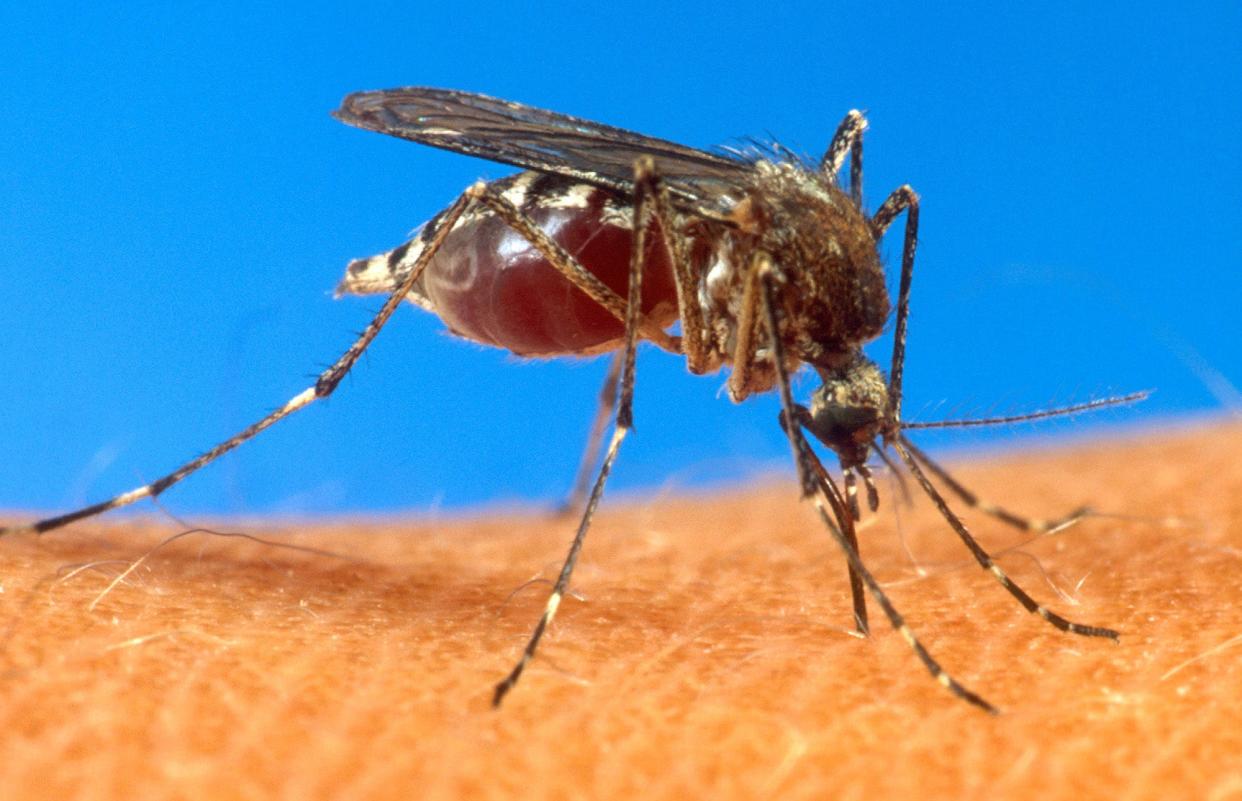Florida Health Dept.: West Nile Virus case from September confirmed in Sarasota County

The Florida Department of Health in Sarasota County issued a mosquito-borne advisory Monday evening, after confirmation of a single case of West Nile Virus in early September.
Chuck Henry, the health officer for the department’s Sarasota County office, publicized the case in an email to the Sarasota County Commission.
Wade Brennan, manager of the Sarasota County Mosquito Control District, said in a Tuesday press conference that the infection occurred in the southern portion of the city of Sarasota.
Both surveillance and mosquito control efforts in that area started in early September, when the infection was believed to have occurred.
“We’ve done multiple treatments, larviciding – killing the mosquitos in the ditches – and also adulticiding mosquitos in that area,” Brennan said.

West Nile Virus affects the central nervous system and can cause serious illness. However, about 80% of people who become infected with the virus will not show any symptoms.
Henry wrote that the case in early September had already been treated.
“Laboratory confirmation was just received and we anticipate that the case will appear in the Weekly Florida Arboviral Report this week,” he wrote.
Henry stressed that a risk of transmission to people exists, though “surveillance indicates that there has not been an increase in mosquito-borne disease activity in sentinel chicken flocks or mosquito pools.”
The last time a sentinel chicken tested positive for West Nile Virus was in February, in a rural area of Sarasota County.
“This has been an extremely low activity year for West Nile Virus activity so that’s very fortunate,” Brennan said.
The Florida Department of Health posted a video on West Nile Virus on YouTube at:https://youtu.be/I0X8ENd1dUA.
More information is available at https://sarasota.floridahealth.gov/.
The two types of mosquitos that typically carry West Nile Virus are Culex nigripalpus and Culex quinquefasciatus – the latter of which is also known as the southern house mosquito.
Both mosquito types thrive in wet, hot, humid conditions, Brennan said.
“So when we had a lot of those rains from Hurricane Idalia and we also had the rains that followed that, that really boosted our Culex nigripalpus population,” he said.
The Culex quinquefasciatus frequently flourishes in back yards.
“Anything in your yard that holds water please get rid of it at this time,” Brennan said.
Brennan said reduced rainfall and current cooler temperatures are helping the effort to control the mosquito population.
West Nile Virus is typically present in birds and mosquitoes and can spread the disease after biting an infected bird. Usually they bite other birds, but occasionally bite humans.
“We are not their normal host or preference for a blood source; that’s why we don’t have a lot of West Nile Virus,” Brennan said.
A Sarasota County spokeswoman noted by email that Sarasota County Mosquito Management Services takes steps year-round to reduce mosquito populations and mosquito-borne illness, including spraying to kill larvae and adult mosquitoes.
Residents should drain and cover standing water, wear repellant and long-loose-fitting clothing.
For more information on Mosquito Management Services, mosquito-borne illness, spray missions or to submit a service request, call 311 or visit scgov.net/mosquito.
Over the late spring and summer, seven cases of malaria, another mosquito-borne disease, were reported in the north Sarasota County area, prompting an alert for Sarasota and Manatee counties through early September.
The malaria outbreak was an atypical situation, Brennan said, while September and October are typically a peak time for West Nile Virus risk.
“This is a natural disease cycle that’s going on,” Brennan said. “I don’t think we're in the same situation at all as we were with malaria.”
This article originally appeared on Sarasota Herald-Tribune: West Nile Virus detected in Sarasota County; exposure was in September
